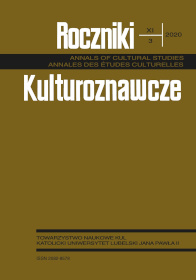Epidemic and the Individual: Renaissance Understandings of the Plague in View of Modern Experiences
Epidemic and the Individual: Renaissance Understandings of the Plague in View of Modern Experiences
Author(s): Paul Richard BlumSubject(s): History, Anthropology, Social Sciences, Sociology, Culture and social structure , Health and medicine and law, 13th to 14th Centuries, 15th Century
Published by: Towarzystwo Naukowe KUL & Katolicki Uniwersytet Lubelski Jana Pawła II
Keywords: plague; syphilis; Marsilio Ficino; Girolamo Fracastoro; Jean Ferne
Summary/Abstract: Epidemics are a challenge to individualism. While we tend to think of illnesses in terms of personal suffering and choices, plagues affect communities and societies over long times. Epidemics turn the perspective to the collective, the transcendent, and the external, and fear, therapy and care become universal, rather than individual. These are the lessons we can gather from Renaissance philosophers’ theories of epidemics. Marsilio Ficino (1433–1499) gave “Advice against the pestilence” by emphasizing the harmony of body with the environment (air and the planets). Girolamo Fracastoro (1477–1553) produced the first description of “Syphilis,” both scientifically and poetically. He invented the name for that contagion. He saw sexual activity as one of the typical behaviors among fellow humans. Care for one’s health requires respect for the others; and blaming others (as in ‘French disease’) is useless. Jean Fernel (1497–1558) called for strictly medical research into epidemics; at the same time, he acknowledged the insufficiency of data; hence the title of his book De abditis rerum causis (“The hidden causes”). Thus, he explained the irrational behavior of populations and some scholars. The task is to live with uncertainty and to contain epidemics by containing the unknown.
Journal: Roczniki Kulturoznawcze
- Issue Year: 11/2020
- Issue No: 3
- Page Range: 53-68
- Page Count: 16
- Language: English

